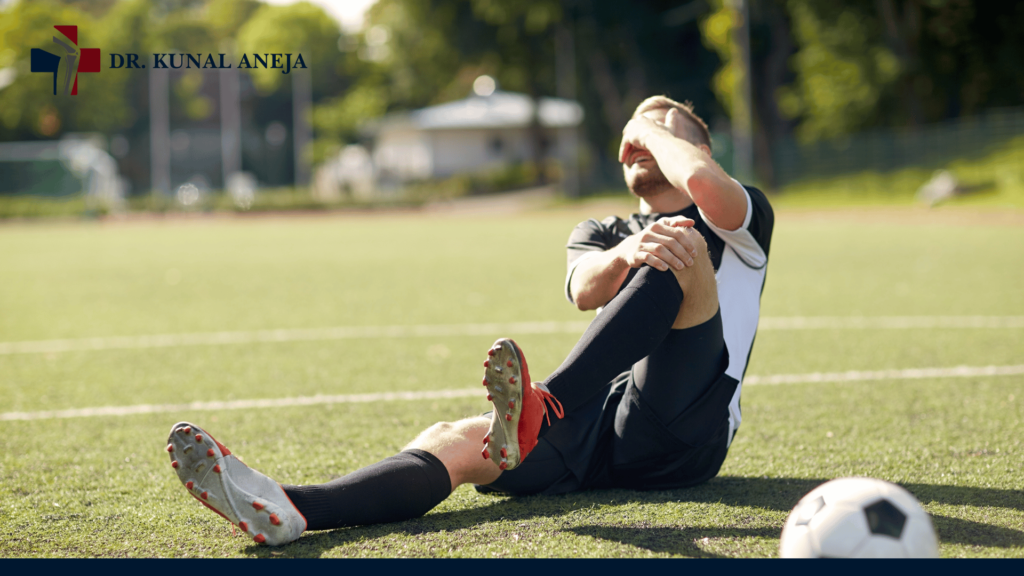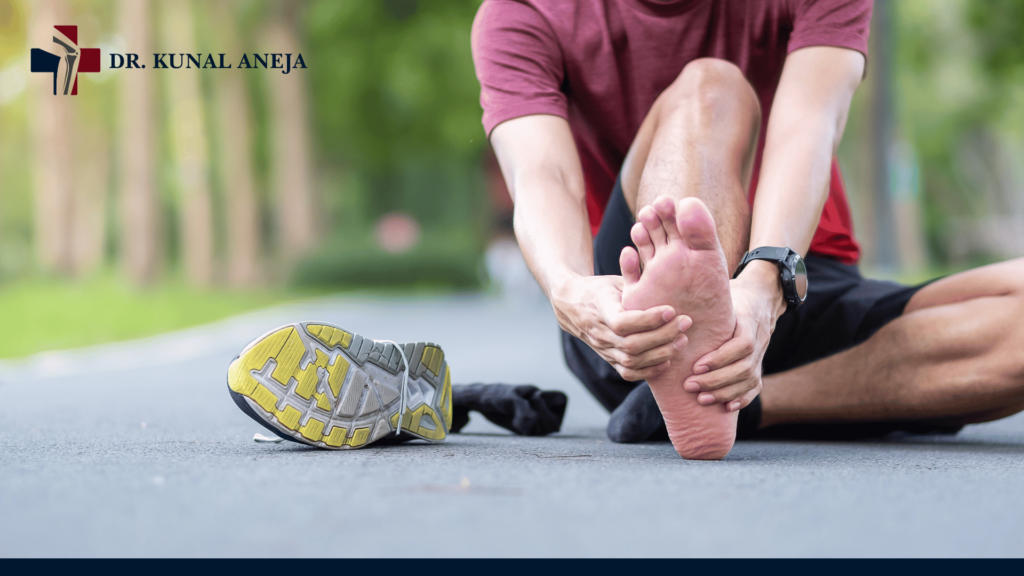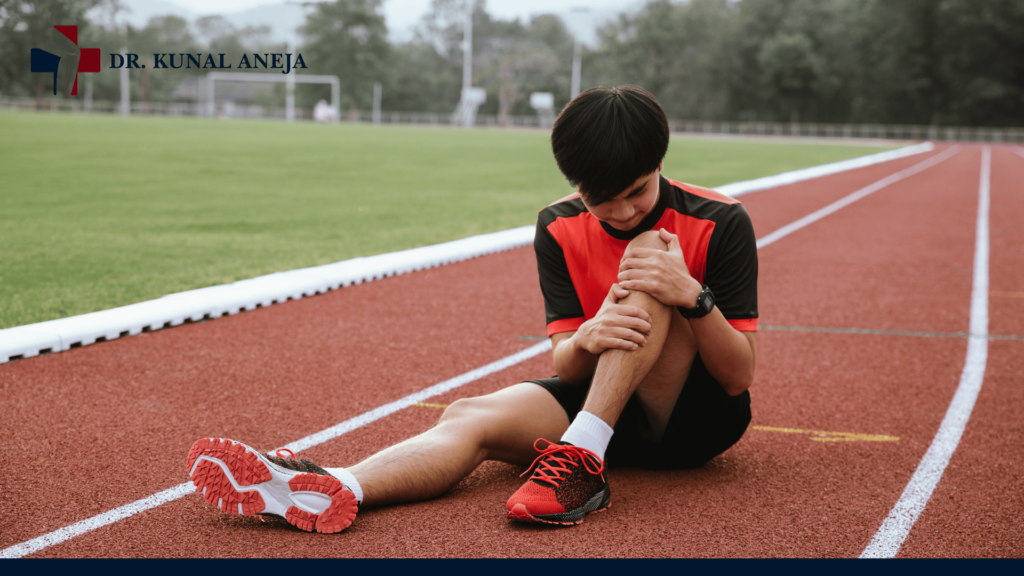Overview
Imagine waking up one morning, ready to tackle your day, only to be stopped in your tracks by a sharp pain in your knee. You can’t recall any injury, but suddenly, the simplest tasks like climbing stairs or playing with your kids feel like climbing a mountain. This is a reality many face, and when that pain persists, the first thought is often, “I need to see an orthopaedic doctor in India.” But how do you choose the right one? In this article, we’ll delve into what an orthopaedic doctor can do for you, how to find the best specialists in India, and why Dr. Kunal Aneja might just be the right choice for your needs.

What Should You Know Before Visiting an Orthopaedic Doctor in India?
Before you book your appointment, it’s crucial to prepare. Here are some key considerations:
- Symptoms: Note specific areas of pain, swelling, or stiffness. This information will be invaluable to your doctor.
- Medical History: Gather any past medical records, surgeries, or treatments related to your condition.
- Questions to Ask: Consider what you want to know about your condition, treatment options, and recovery.
By preparing in advance, you can make the most out of your visit.
How Can an Orthopaedic Doctor Help You with Common Musculoskeletal Issues?
Orthopaedic doctors specialize in diagnosing and treating issues related to bones, joints, and muscles. Common conditions they handle include:
- Arthritis: Chronic pain and stiffness in joints.
- Fractures: Broken bones from falls or injuries.
- Tendonitis: Inflammation of tendons, often due to repetitive motions.
- Sports Injuries: Sprains, strains, and other injuries from physical activity.
Understanding these conditions can help you know when to seek help.
What Qualifications and Experience Should You Look for in an Orthopaedic Doctor in India?
When choosing an orthopaedic doctor, consider the following qualifications:
- Board Certification: Ensure the doctor is board-certified, indicating they have met specific training and education standards.
- Fellowship Training: Look for specialists who have completed fellowships in specific areas like joint replacement or sports medicine.
- Experience: Consider how long they have been practicing and their experience with your specific condition.
These factors can greatly influence the quality of care you receive.

How Do Orthopaedic Doctors in India Diagnose and Treat Sports Injuries?
If you’re an athlete or enjoy regular physical activity, understanding how orthopaedic doctors approach sports injuries is crucial. Here’s how they typically proceed:
- Diagnosis:
- Physical Examination: Checking for swelling, tenderness, or range of motion.
- Imaging Tests: X-rays or MRIs may be ordered to identify fractures or tears.
- Treatment:
- Conservative Approaches: This may include rest, ice, compression, and elevation (RICE).
- Physical Therapy: Tailored exercises to strengthen muscles and improve flexibility.
- Surgery: In severe cases, minimally invasive surgeries may be recommended.
Understanding these processes can help you feel more informed about your care.
What Innovative Treatments Are Available from Orthopaedic Doctors in India?
The field of orthopaedics is constantly evolving. Here are some innovative treatments you might consider:
- Robotic Surgery: This approach offers precision in joint replacement procedures, reducing recovery time and improving outcomes.
- Regenerative Medicine: Techniques like PRP (platelet-rich plasma) therapy use your body’s own healing mechanisms to treat injuries.
- Minimally Invasive Surgery: These procedures reduce tissue damage and lead to quicker recovery times.
Keeping abreast of new treatments can empower you to make informed decisions about your care.
How Can You Prepare for Your First Appointment with an Orthopaedic Doctor in India?
Preparation can alleviate anxiety and ensure your appointment is productive. Here are some tips:
- Document Symptoms: Keep a detailed log of your symptoms leading up to the appointment.
- Prepare Questions: Write down any questions you have about your diagnosis, treatment options, and recovery.
- Bring Support: Consider bringing a family member or friend for support and to help remember important information.
Taking these steps can help you feel more at ease and focused during your visit.
What Can You Expect During Recovery After an Orthopaedic Treatment?
Recovery can vary based on the type of treatment you undergo, but here’s a general idea of what to expect:
- Initial Rest: Take it easy in the first few days post-treatment.
- Physical Therapy: Most recovery plans will include physical therapy to strengthen the affected area.
- Follow-up Appointments: Regular check-ins with your doctor will help monitor your progress.
Understanding the recovery process can help set realistic expectations for your healing journey.
Why is Dr. Kunal Aneja Considered the Best Orthopaedic Doctor in India?
When it comes to finding an orthopaedic doctor in India, Dr. Kunal Aneja stands out for several reasons:
- Triple Board Certification: This demonstrates his extensive training and expertise in the field.
- Specialization in Joint Replacement and Sports Medicine: His focus ensures you receive the best care tailored to your needs.
- Global Experience: With training from numerous centers of excellence worldwide, he brings a wealth of knowledge to his practice.

Conclusion
In the bustling healthcare landscape of Delhi, finding the right orthopaedic doctor can feel overwhelming. However, with the right knowledge and preparation, you can make an informed choice. Whether you’re dealing with a sports injury or chronic joint pain, the expertise of an orthopaedic specialist like Dr. Kunal Aneja can help you regain your quality of life. Don’t let pain hold you back—take the first step toward recovery today.
FAQs
1. What should I bring to my appointment with an orthopaedic doctor?
Ans. Bring your medical history, any imaging results, and a list of current medications.
2. How long does recovery typically take after surgery?
Ans. Recovery varies by procedure, but most patients can expect a few weeks to several months.
3. Are there non-surgical treatment options for joint pain?
Ans. Yes, options like physical therapy, medication, and lifestyle changes can often alleviate pain.
4. What should I do if my symptoms worsen?
Ans. Contact your orthopaedic doctor immediately to discuss your symptoms and adjust your treatment plan.
5. How can I prevent sports injuries?
Ans. Proper warm-up, strength training, and using appropriate gear can help reduce the risk of injuries.

